How to Store Chives to Keep Them Fresh for Longer?
Here’s all you need to know about the storage and shelf life of chives. Learn how to store chives to keep them fresh and how long they last, depending on the storage method.
Bought a bunch of fresh chives and not sure how to go about them? That begs the question: how do you store chives?
If you always use chives the same day you buy them, storage is never an issue. But if you need only a tiny amount, storage practices and shelf life come into play.
And if you want to learn about either, you’re in the right place. Let’s jump right in.
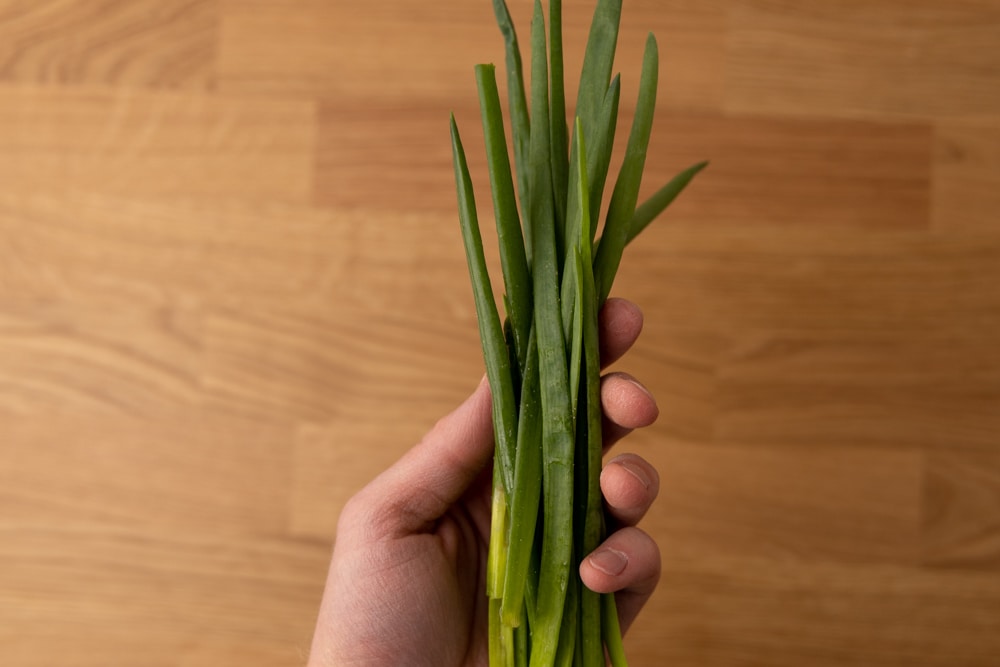
How Long Do Chives Last?
| Counter | Fridge | |
|---|---|---|
| Chives (as-is) | 1 – 2 days | 4 – 5 days |
| Chives (+ dry paper towel) | 7 days | |
| Chives (+ stems in water) | 7 days | |
| Chives (+ moist paper towel & plastic bag) | up to 14 days |
Fresh chives keep for a day or two on the counter but last between 5 days and two weeks if you refrigerate them. The storage time depends on conditions, so the more work you put in, the better results you should expect.
If you leave chives on the counter, they’ll retain quality for a day or so. So that’s a decent option only if you’re going to use them soon after you get home from the grocery store.
If you grab the bunch and chuck it in the crisper drawer as-is, they’ll keep for only 4 to 5 days before water-soaked areas start to form and decay sets in.
But if you go all in and wrap your chives with moist paper towels and place them in a plastic bag, they’ll last much longer.
(As you can tell, chives don’t last nearly as long as their close cousins: onions and garlic. But their storage time is quite similar to how long leeks last, another not-so-distant relative, and slightly shorter than the shelf life of celery.)
In the table above, I put a few ways of storing chives and what you should expect when it comes to the storage period for each. Let’s go over those storage methods.

How To Store Chives
Store chives in the fridge. If you need them to last longer than a few days, wrap them with a damp paper towel and put them into a freezer bag.
If you know you won’t finish the bunch within two weeks, freeze them.
That’s the gist of it.
Chives like cold temperatures between 32°F and 41°F (or 0°C to 5°C) and very high humidity. They keep the longest when the temperature is near the lower end of that spectrum.
Therefore, refrigerating this plant is pretty much a must.
Next, wash chives under running water only when you’re ready to use them.
And if you ever have to wash them before storage, make sure they’re nice and dry before you place them in the fridge. This way, they won’t spoil prematurely due to excess moisture.
Now, let’s talk about how to store chives in the fridge.
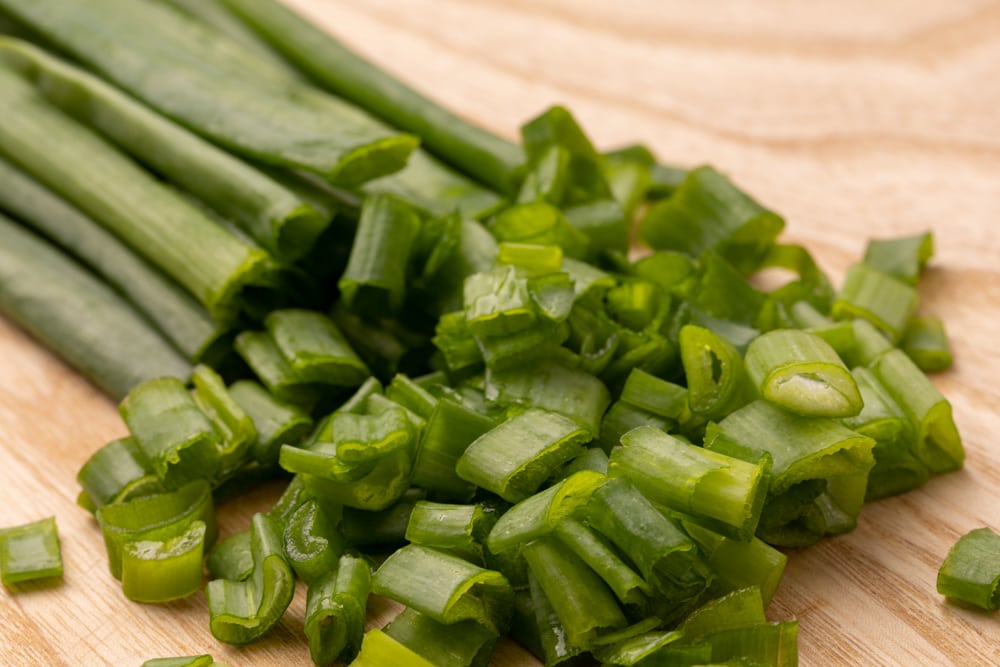
Storing Chives in the Fridge
1. As-is.
The easiest option is to place the chives bunch in the crisper drawer and call it a day.
That storage method should give you 4 to 5 days of decent quality, assuming that your veggie drawer is pretty humid and you don’t squash the green stems with other produce.
After those 4 to 5 days, you should start noticing some darkening, especially near the ends, and some water-soaked areas.
After another day or two, the whole bunch will be wet, mushy, and gross. The only thing you can do at that point is to discard it.
A quick and easy upgrade is to wrap the chives with paper towels.
2. Wrapped in paper towels.
If you wrap your chives with a paper towel or two, they’ll keep for about a week in the crisper.
The towels will soak in any extra moisture, preventing wet spots from forming for a few more days. Plus, that absorbed water helps keep the bunch humid, extending how long those chives last.
A similar approach helps lettuce last longer, and if you use a moist paper towel instead, it helps asparagus keep for longer, too.
For even better results, use a moist paper towel and place the wrapped bunch in a plastic bag.
3. Moist paper towel in a plastic bag.
Storing chives wrapped in a moist (not wet) paper towel is the best way to keep them fresh.
The towel (or towels) provide extra humidity from the get-go and can still absorb excess moisture from chives.
Leave the plastic bag unsealed so that some moisture can evaporate instead of being locked in. Chives like very high humidity, but sealing them tightly so that they can’t dispose of any would be too much of a good thing.
With this method, your bunch of chives can last for up to two weeks.
(Similar setup helps with storing parsley and extending the shelf life of green onions.)
4. Stems in water.
Another option is to store chives upright in a jar filled with an inch or two of water. They do that in supermarkets sometimes.
Stored this way, chives keep for about a week.
The issue is that it requires a bit of extra space in the fridge, and you need to change the water every day or two. Too much of a hassle for me.
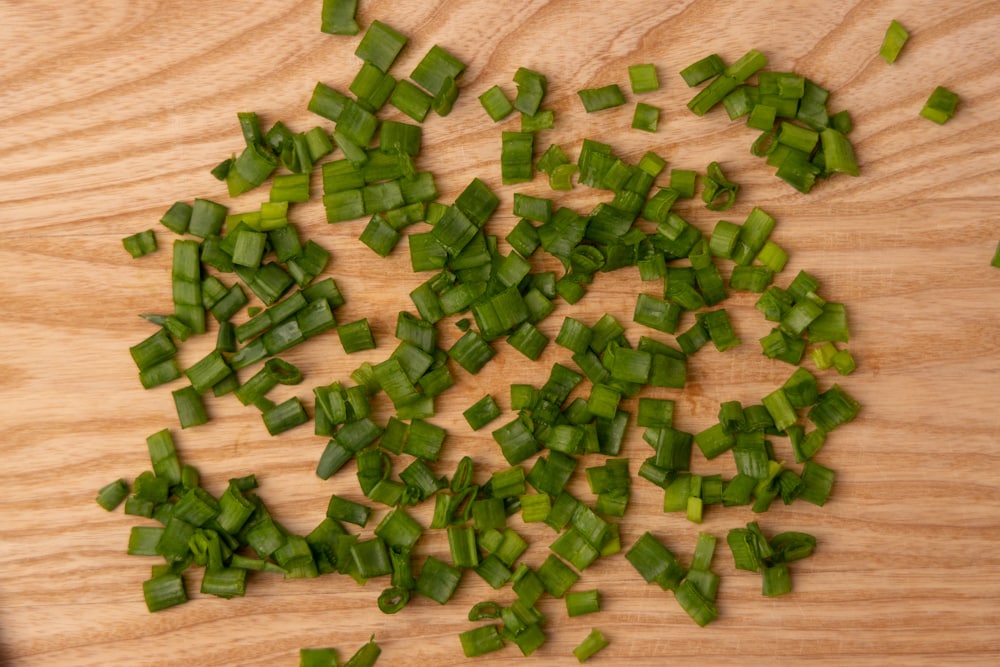
Other Storage Methods
Storing fresh chives in the fridge has its limits – all you can get is maybe two weeks of good quality if you do everything right.
But if that’s not long enough for you, or you have way too much chives on hand, there are other options.
The first one is to dry your chives. Depending on what you have on hand, you can air dry them, use a food dehydrator, or oven dry them. Here’s a good article about the topic.
The other one is to chop and freeze your chives. I prefer this solution because I have the herb handy whenever needed, and I don’t need to worry about it going bad or losing quality.
If you’d like to learn about freezing, here’s my article on how to freeze chives.
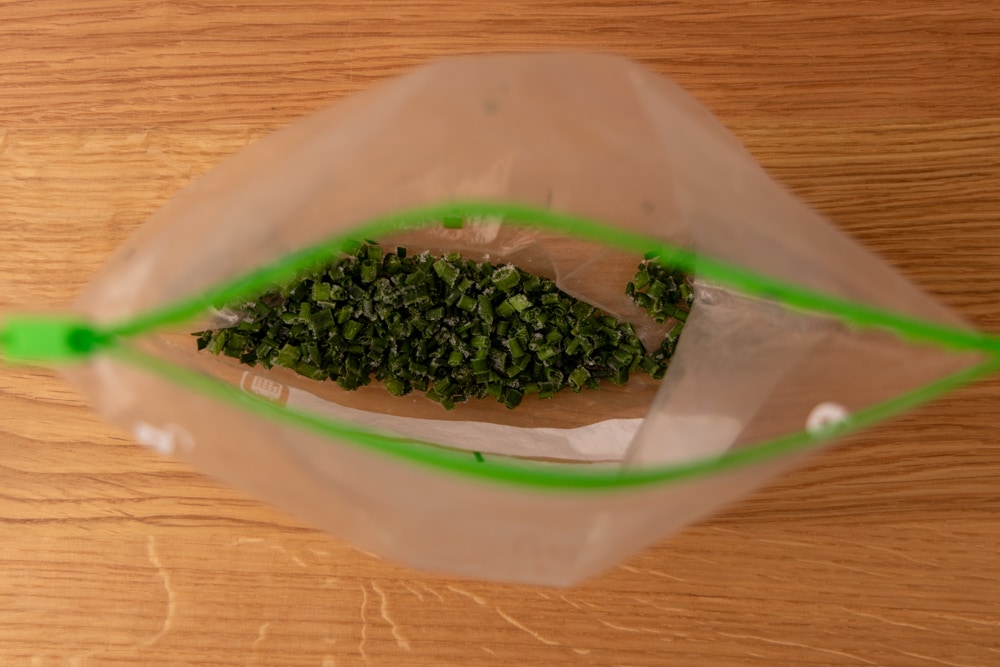
How to Tell if Chives Are Bad?
Discard chives if:
- They are wet, mushy, or discolored (translucent or darkened). If that happens to yours regularly, start using paper towels or freezing your chives (the same works if your spinach often wilts and goes soggy).
- The bunch starts to rot or grow mold. It’s not that common, but it might happen. If it does, those chives are done for.
Of course, you can cut out a small water-soaked area or remove a few mushy stalks.
Unfortunately, that only works if chives have just started to lose quality. In other words, you’ve caught the issue early.
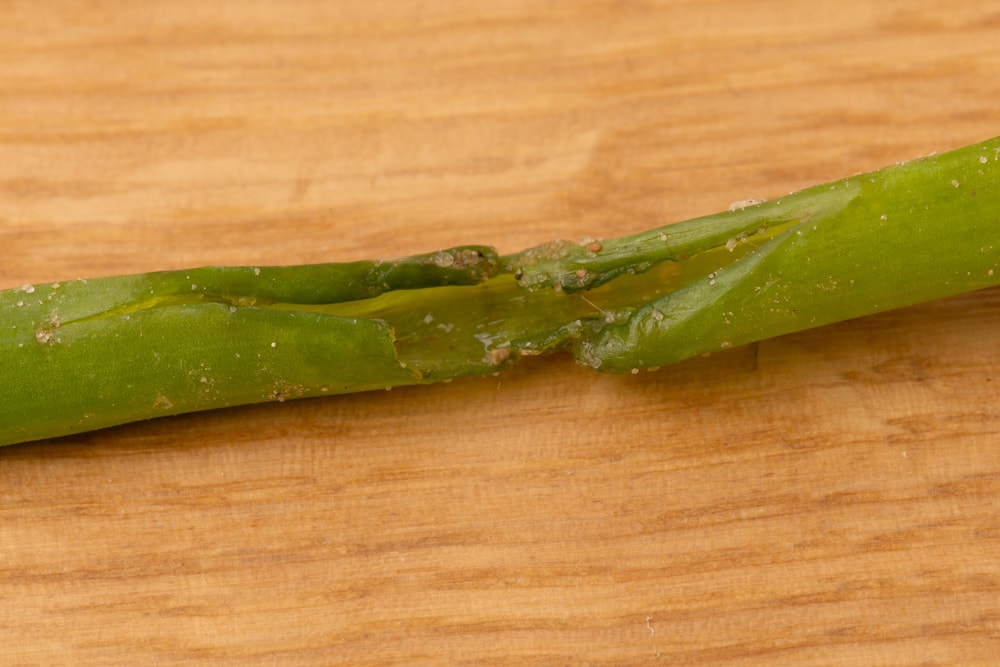
For me, I tend to forget that I have fresh chives in the fridge. Then, after a couple of days, I stumble upon the bunch when I’m searching for something else, and at that point, the stalks are already spoiled.
Because of that, my wife and I switched to storing frozen chives instead. We prep the bunch as soon as possible, making sure it never ends up in the trash can.
If your chives often go bad before you use them, consider switching to freezing them.
Chives Storage and Shelf Life Summary
Thank you for reading this short guide on chives. Let’s briefly recap what we’ve covered above:
- How long do chives last? Chives keep for one to two days on the counter and between 5 and 14 days in the fridge. The better the storage method you choose, the longer they’ll last, so if you just put the bunch in the crisper drawer, they’ll keep quality for only 4 to 5 days.
- How to store chives? Keep chives refrigerated. If you need more than 4 to 5 days of storage time, wrap them in paper towels. For even longer, use moist paper towels and place the wrapped bunch in a plastic bag that you leave unsealed.
- How to tell if chives are bad? Chives are spoiled if wet, mushy, or discolored (darkened or translucent), or if they start to rot or grow mold. If you’ve caught the issue early, you can discard the bad stalks and use the rest.
Rotten Records: Share Your Snap!
Caught some food past its prime? Upload your photo to “Rotten Records” and help others spot the signs of spoilage. Every image makes our food community safer and more informed!
![Can You Freeze Celery? [Yes, Here’s How]](https://www.doesitgobad.com/wp-content/uploads/Frozen-celery-in-freezer-bag-768x512.jpg)
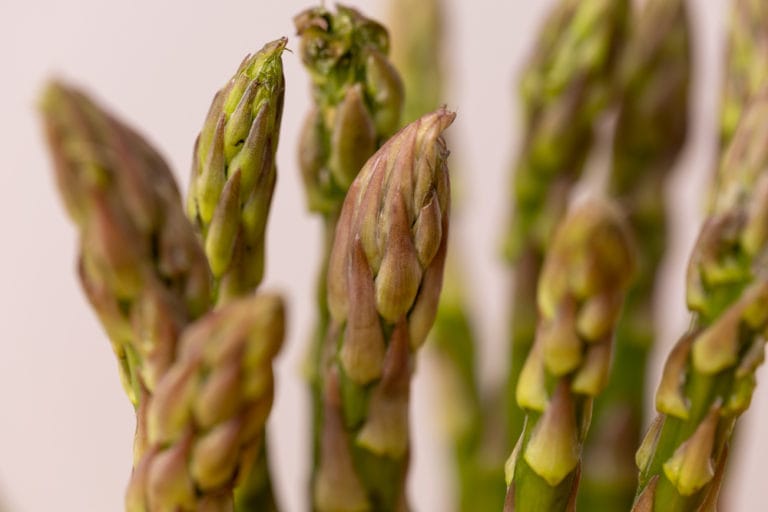
![How Long Does Spinach Last? [+ Tips to Make It Last Longer]](https://www.doesitgobad.com/wp-content/uploads/spinach-shelf-life-infographic-768x512.jpg)
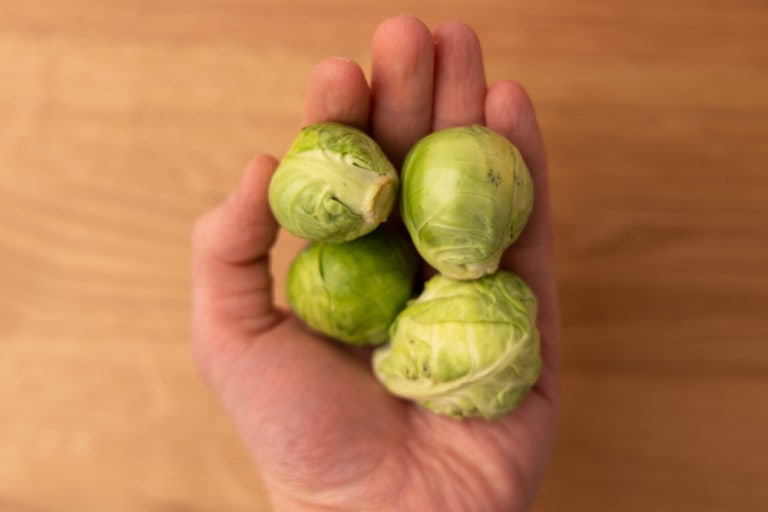
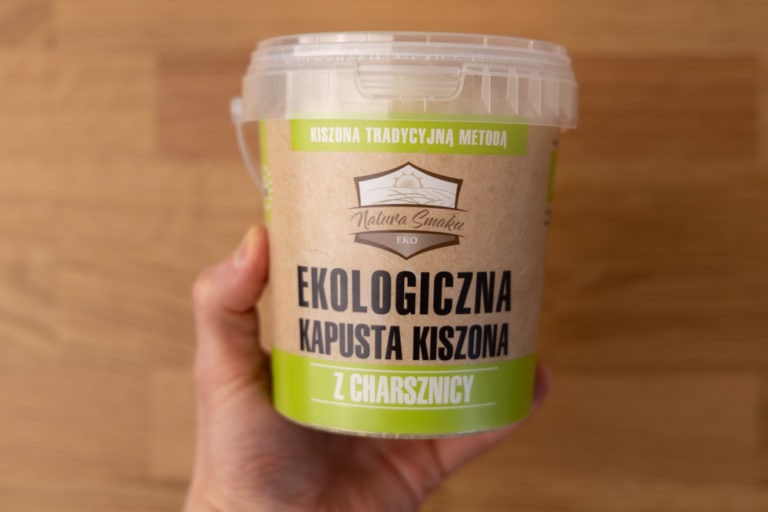
![How Long Does Garlic Last? [Whole Bulb, Peeled, Minced]](https://www.doesitgobad.com/wp-content/uploads/Garlic-bulb.jpg)